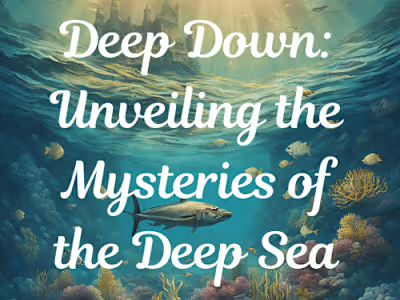The Power of the Human Mind
The Power of the Human Mind
The human mind is one of the most remarkable phenomena in existence, a complex and dynamic system capable of profound thought, creativity, resilience, and emotional depth. This intricate organ not only defines our individual identities but also drives the collective progress of humanity. With its billions of neurons and intricate networks, the human mind allows us to learn, remember, imagine, and innovate. Let’s delve deeper into the myriad facets of the human mind, exploring how its power shapes our lives and the world around us.
Creativity and Innovation
One of the most awe-inspiring aspects of the human mind is its boundless creativity. Creativity is not just the domain of artists and inventors; it is a fundamental human trait that manifests in countless ways every day. The masterpieces of Leonardo da Vinci, the symphonies of Beethoven, and the theories of Einstein all emerged from the same basic cognitive processes that enable us to solve everyday problems, plan future activities, and imagine new possibilities.
Creativity involves thinking beyond the immediate and the tangible, allowing us to envision what does not yet exist. It’s the driving force behind art, science, literature, and every form of innovation. The ability to think abstractly and make novel connections between seemingly unrelated ideas is a hallmark of human cognition. This unique capability has led to the development of languages, cultures, technologies, and civilizations.
Moreover, creativity is not a static trait but a dynamic process that can be cultivated and enhanced. Techniques such as brainstorming, mind mapping, and divergent thinking exercises can stimulate creative thinking. By challenging ourselves to think outside the box and view problems from different perspectives, we can unlock new levels of creativity. This process is often facilitated by a mindset that embraces curiosity, experimentation, and a willingness to take risks.
Learning and Memory
From the moment we are born, our minds are engaged in a continuous process of learning. This lifelong journey begins with the basic sensory experiences of infancy and evolves into the complex intellectual pursuits of adulthood. Learning involves acquiring new information, skills, and behaviors through experience, observation, and study. It is a fundamental aspect of human development and adaptation.
Memory, the ability to store and retrieve information, is integral to learning. Our memories enable us to recall past experiences, understand our personal history, and apply previous knowledge to new situations. Memory is not a single, monolithic function but a complex system involving different types of memory, such as short-term, long-term, procedural, and declarative memory.
Short-term memory allows us to hold and manipulate information for brief periods, such as remembering a phone number long enough to dial it. Long-term memory, on the other hand, involves the storage of information over extended periods, from hours to a lifetime. Procedural memory helps us remember how to perform tasks, like riding a bike or typing on a keyboard, while declarative memory involves facts and events, like remembering the capital of France or recalling a family vacation.
The process of memory consolidation—transforming short-term memories into long-term ones—is crucial for learning. This process often occurs during sleep, highlighting the importance of rest for cognitive function. Techniques such as repetition, association, and visualization can enhance memory consolidation, making it easier to retain and recall information.
Neuroplasticity, the brain's ability to reorganize itself by forming new neural connections, plays a key role in learning and memory. This adaptability allows the brain to compensate for injury and adjust to new experiences. Engaging in mentally stimulating activities, such as learning a new language or playing a musical instrument, can enhance neuroplasticity and improve cognitive function.
Resilience and Adaptability
Life is full of challenges and adversities, yet humans have an extraordinary capacity for resilience—the ability to recover and thrive despite setbacks. This resilience is rooted in the mind's flexibility and adaptability, which enable us to adjust our thinking and behavior in response to changing circumstances.
Resilience is supported by various cognitive and emotional strategies. Positive thinking, for example, helps us maintain an optimistic outlook and find silver linings even in difficult situations. This doesn't mean ignoring problems but rather approaching them with a mindset that emphasizes potential solutions and growth opportunities. Cognitive reframing, a technique that involves changing the way we interpret and respond to events, can also enhance resilience.
Problem-solving skills are another crucial component of resilience. By breaking down challenges into manageable parts, generating potential solutions, and evaluating their effectiveness, we can navigate obstacles more effectively. These skills can be developed and refined through practice and experience.
Social support plays a significant role in resilience. Strong relationships with family, friends, and colleagues provide emotional support, practical assistance, and a sense of belonging. These connections help buffer the effects of stress and adversity, making it easier to cope with difficulties.
The concept of neuroplasticity, previously mentioned in the context of learning and memory, is also relevant to resilience. The brain's ability to reorganize itself means that we can develop new ways of thinking and behaving even in the face of adversity. Mindfulness and meditation practices, which enhance self-awareness and emotional regulation, can further support resilience by helping us stay grounded and focused during challenging times.
The Power of Mindfulness
In recent years, mindfulness has gained widespread recognition as a powerful tool for enhancing mental well-being. Mindfulness involves paying focused, non-judgmental attention to the present moment. This practice can improve mental clarity, reduce stress, and enhance emotional regulation.
Mindfulness meditation, one of the most common practices, involves sitting quietly and focusing on your breath, bodily sensations, or a specific thought or phrase. The goal is to observe your thoughts and feelings without becoming attached to them or judging them. This practice helps cultivate a state of awareness that can be carried into daily life, allowing us to respond to situations more thoughtfully rather than reactively.
Research has shown that mindfulness can have numerous benefits for mental and physical health. It can reduce symptoms of anxiety and depression, lower blood pressure, improve sleep quality, and enhance overall well-being. By promoting a state of calm and focused awareness, mindfulness helps us manage stress more effectively and make better decisions.
Mindfulness also enhances our ability to concentrate and perform tasks efficiently. By training our minds to focus on the present moment, we can reduce distractions and improve our productivity. This is particularly valuable in today's fast-paced world, where we are often bombarded with information and demands on our attention.
Furthermore, mindfulness fosters a deeper connection with ourselves and others. By becoming more attuned to our thoughts, feelings, and bodily sensations, we can develop greater self-awareness and self-compassion. This, in turn, enhances our empathy and understanding of others, strengthening our relationships and promoting a sense of interconnectedness.
Harnessing the Power of the Human Mind
The potential of the human mind is vast and multifaceted, encompassing creativity, learning, resilience, and mindfulness. By understanding and nurturing these aspects of our cognitive abilities, we can enhance our personal growth, well-being, and contributions to society.
Cultivating Creativity:
Embrace curiosity, experimentation, and risk-taking to stimulate creative thinking. Engage in activities that challenge your mind, such as puzzles, games, and artistic pursuits. Collaborate with others to generate new ideas and perspectives.
Enhancing Learning and Memory:
Keep your mind active by continuously seeking new knowledge and experiences. Practice techniques such as repetition, association, and visualization to improve memory retention. Prioritize sleep and rest to support cognitive function.
Building Resilience:
Develop positive thinking, problem-solving skills, and social support networks to enhance your ability to cope with challenges. Practice cognitive reframing to shift your perspective on difficult situations. Engage in mindfulness and meditation to cultivate emotional regulation and self-awareness.
Practicing Mindfulness:
Incorporate mindfulness practices into your daily routine to improve mental clarity, reduce stress, and enhance well-being. Focus on the present moment and observe your thoughts and feelings without judgment. Use mindfulness to deepen your connection with yourself and others.
Conclusion
The power of the human mind is a testament to the extraordinary potential within each of us. Our capacity for creativity, learning, resilience, and mindfulness shapes our lives and the world around us. By harnessing this potential, we can navigate life's complexities with greater confidence and purpose, ultimately leading to a richer and more fulfilling existence. Embracing the power of the human mind allows us to unlock new levels of personal and collective growth, transforming challenges into opportunities and dreams into realities.
Like this project
Posted Jul 28, 2024
Explore the mind's power: creativity, learning, resilience, and mindfulness. Unlock personal growth and well-being by harnessing cognitive abilities.
Likes
0
Views
6





![Content for YouTube video [ Enhance Your Daily Life with AI ]](https://media.contra.com/image/upload/w_400,q_auto:good,c_fill/diunqkme1lc86iiynqdv.avif)